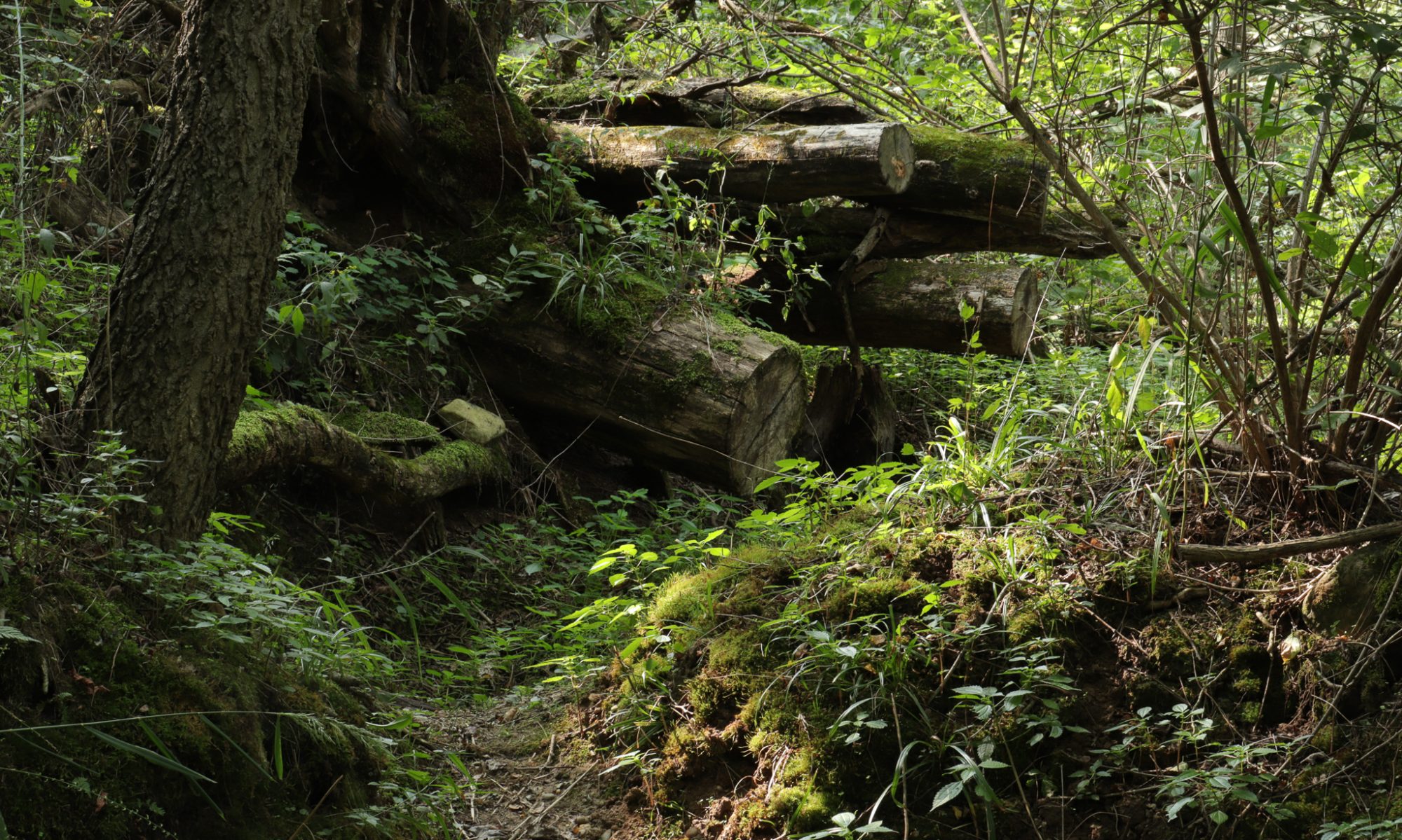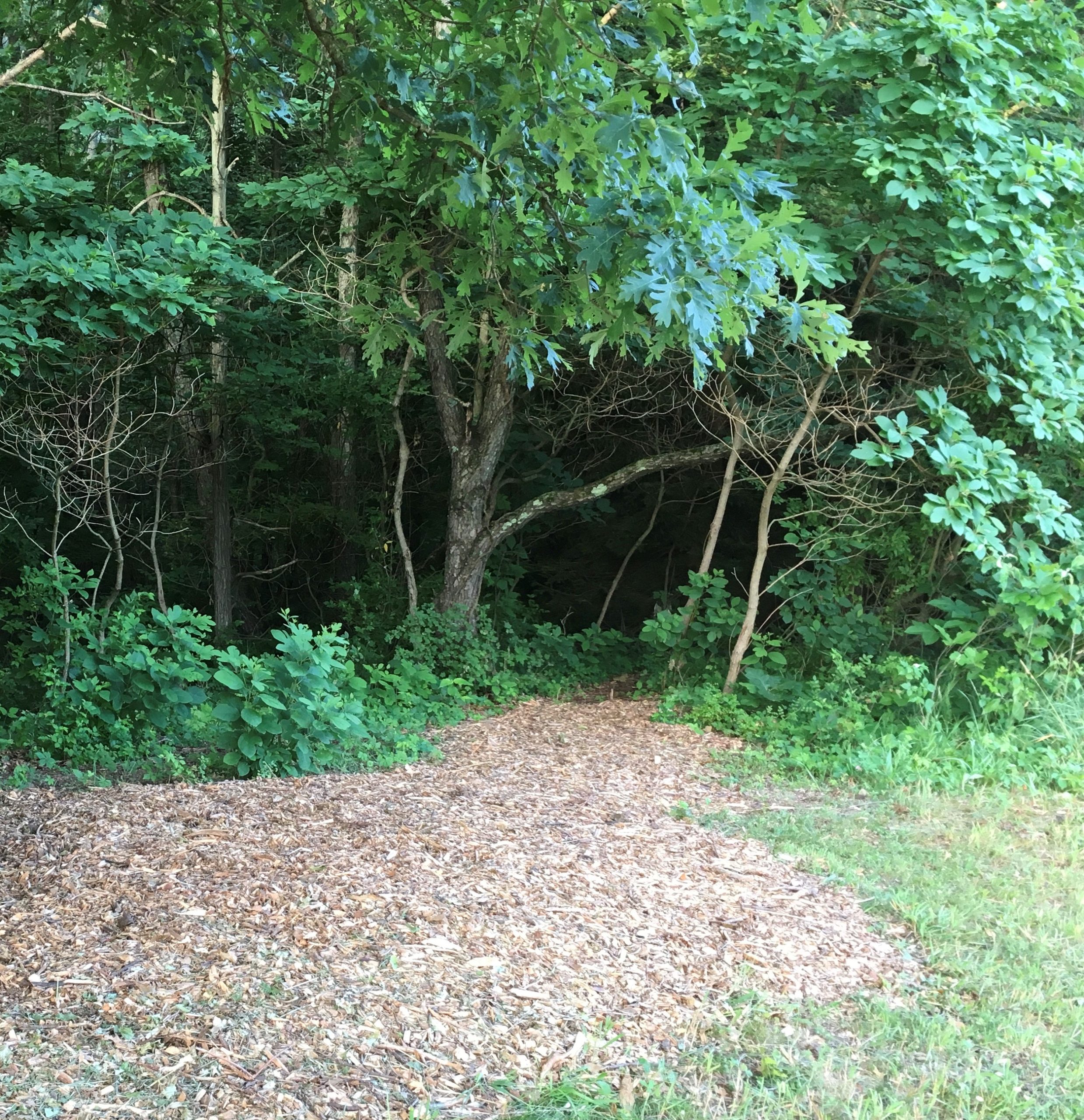There’s a tree limb along the trail at The Hermitage that juts over the trail just at forehead height for me. For those taller, it might be neck height and some might be able to skim just under the branch without touching. Many times I’ve heard the suggestion that the branch should be cut. It is just too inconvenient, or someone might be hurt by it. The first objection to the tree branch is certainly true, it is inconvenient, in a way. The second observation may also have some merit, but as the average human walking speed is three miles per hour, it is not very likely that serious injury will result.
Every time I hear the suggestion to cut that limb, I demur. Partly because I love trees and their various forms are beautiful to me. I have also come to delight in that particular branch. It reminds me of some truths of which I need to be continually reminded.
As I enter the woods at that place in the trail, I must duck below the branch—I bow. That physical movement reminds me that I bow before the life of the woods. I don’t stride into the forest, master of it all, able to cut at whim. Though it is true, I could do that, I choose, by leaving that tree branch there, to acknowledge the tree and the forest as existing without my permission or intervention. I do not make trees. I do not make them grow. And, I do not make them with limbs that grow horizontally over a pathway. I am not the creature who spins sunlight into sugar. I do not provide homes for birds, squirrels, raccoons, insects and fungi. I have none of those special gifts. But, the tree does. In bowing as I enter the woods, I remember to respect all living things in this space—especially the tree with the jutting branch which does such important work.
If I bow as I leave the woods, I am reminded to be thankful for the gifts that a walk in the woods has given me. I have inhaled the healing air that the trees exhale. I have heard the wind in the canopy, the rat-a-tat of a wood pecker, the song of a wood frog or a bird. I have seen the emerald green of moss peeking through a mound of snow. I have marveled at the different kinds of fungus that grow on dead and dying trees. I have watched a pair of ducks take off from the swamp. I may have glimpsed three deer bounding away from the path. I see the architecture of bushes and trees—noting their strength and graceful beauty. I may have tasted the sweetness of the blackberries that line the trail. I may have pulled some sassafras shoots to take home for my morning tea. Or I might have found a brilliant yellow feather from a goldfinch on the path. There are so many riches to take away from my walk in the woods. So, I bow in gratitude as I leave. Grateful to the God who made all of these things that I can enjoy—even the tree with the jutting branch.
As I reflect on my humanness and that my usual inclination would be to “clear the path, make it easy and comfortable,” I am reminded that having to bow because of another creature is good spiritual practice. It is a practice that leads to a natural humility. I have enough practices in my life that counter a humble position. I defend myself when others point out that I’m wrong or that my way of thinking is only one of the ways one might think about an issue. So, to bow in order to enter a woodland, I am reminded that there is variety here, that there is more than one way to think about trails. I bow as a gesture of humility toward all that is not me. I bend to make room for other creatures to be as they are made to be. In the letter to the Romans, Paul exhorts Christians to “not to think of yourself more highly than you ought to think” (Romans 12:3). I need a regular reminder of that injunction. Thank you, tree, for helping me remember my place in Creation is to be “with” not “over” all that is here with me.
The tree and its branch also help me remember that I bear the image of God. But, this image can so often be marred in me by my trying to grasp a “greater place.” In the Hymn of Kenosis in the beginning of Philippians 2, the writer reminds us: “Do nothing from selfish ambition or conceit, but in humility regard others as better than yourselves. Let each of you look not to your own interests, but to the interests of others. Let the same mind be in you that was in Christ Jesus,
who, though he was in the form of God,
did not regard equality with God
as something to be exploited,
but emptied himself,
taking the form of a slave,
being born in human likeness.
And being found in human form,
he humbled himself” (Philippians 2:3–8).
This “emptied” quality in God is the quality that can show forth as God’s image in me. Can I walk in the wood as an emptied creature, letting the tree have its natural form? Or, do I need to change the form of the tree to suit my desires? There are good reasons to cut trees, trim branches, remove shrubs, pull weeds, or re-form a landscape. But, each time I bow to enter the woods on the trail, here, I am reminded to ask the questions rather than to assume that I know best or that my desire should naturally take precedence over the form of the tree.
A neighbor reminds me to “ask the tree, it will tell you what it needs.” To some, that may seem weirdly reminiscent of a fairy tale. But, I think what she means, in part, is that trees will tell us what they need by the way they grow and that if we listen to that “voice” we can learn both what the tree needs and what we may be able to give up for the sake of the tree. I live on this planet with all of the creatures God made to be here—large and small. My work is to listen to what God has made and so live at peace with all of Creation.
So, I will listen to the tree and be grateful for the lessons of humility and “God-bearing.” Each time I enter or leave the woods by the tree with the jutting limb, I will remember that in bowing, I bow to the whole intricate mass of created things, and even more, to their Creator.
-Naomi R. Wenger, 2019

